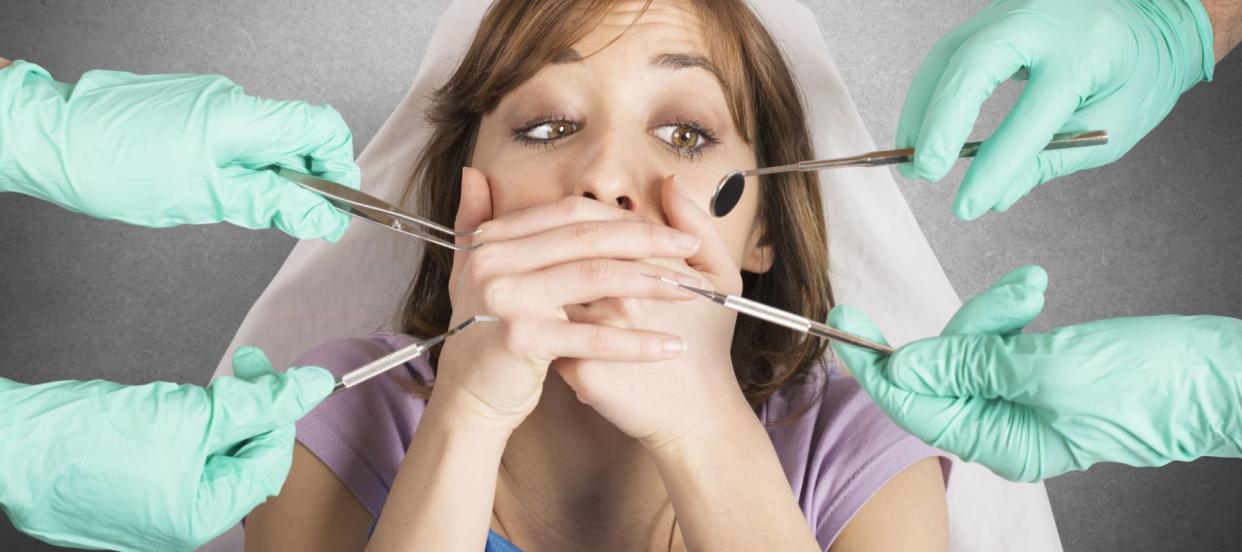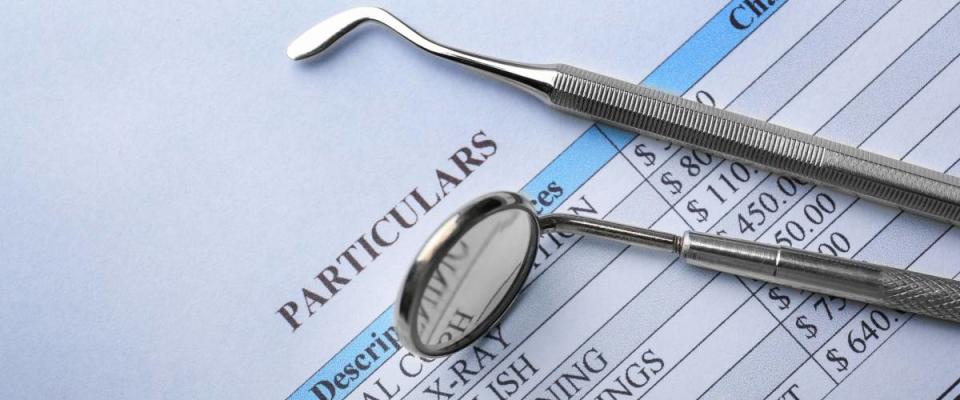Beware These Dental Scams That Can Bite You Hard

Most dentists are talented, caring and ethical, though a "small but disturbing number" are dishonest, in the words of the Coalition Against Insurance Fraud.
They abuse their positions of trust and authority to cheat patients and insurance companies out of an estimated $12.5 billion a year, according to the National Health Care Anti-Fraud Association.
Protect your mouth and your bank account from these common dental scams.
1. Useless treatments

"The most common type of dental fraud is performing treatment that is unnecessary or overdone," says California dentist Dr. Mark Burhenne, founder of Ask the Dentist.
Dentists can overdo it on X-rays, drill for fictitious cavities or extract perfectly good teeth. How would you like to find out after the fact that a painful root canal wasn't necessary?
All dental diagnoses are subjective, and some honorable dentists take a more aggressive approach to treatment than others.
But if eight cavities pop up out of nowhere in your typically healthy mouth, tell the dentist to put the drill away. Get a second opinion.
2. Shoddy work

Bad dentistry can result in loose fillings or poorly fitting crowns — and that's just the start, especially when surgery is involved.
If local anesthesia is incorrectly placed or is administered in the wrong dosage, you could be in for a world of hurt. A botched surgery might result in swelling, chronic pain or serious infection.
Worst of all, blunders may require one or more additional procedures to reverse the damage.
Whenever there are problems or you have concerns, contact your state board of dentistry or the American Dental Association (ADA).
3. Phantom treatments

Unscrupulous dentists make easy money by inventing office visits and treatments that patients never had.
Billing for services not rendered is a simple matter of throwing in a few extra procedural codes.
Then, when you really do seek treatment and file a claim, your insurer might tell you that your benefits have already been exhausted, and that you have to pay out of your own pocket.
Carefully comb through any explanation of benefits you receive from your insurance company, and be on alert for phantom treatments. If mystery dental charges show up on your credit card account, move quickly to dispute them.
4. The silver filling ploy

There is no evidence that amalgam fillings, which are silver in appearance, are hazardous to your health. They do contain mercury, but levels are extremely low.
A shady dentist might tell you that your fillings are leaking mercury and need to be replaced. Until scientific research proves otherwise, the U.S. Food and Drug Administration says that’s a bunch of hooey.
The FDA does recommend getting replacement fillings if you’re allergic to mercury or another metal in amalgam.
Want more MoneyWise? Sign up for our newsletter.
5. Unlicensed dentists and employees

Precise licensing requirements vary from state to state, but all dentists and hygienists must be thoroughly trained and licensed to practice in the U.S.
Why would anyone think of seeing an unlicensed dentist? Not surprisingly, con artists prey on the poor, uneducated and underinsured. The scammers offer their services at rock-bottom prices, and the results of their careless work can be catastrophic.
Before you choose a dentist, verify credentials and experience with the ADA or the state dental board.
Licenses can be revoked for a history of complaints, substance abuse, fraudulent billing, sexual misconduct and a host of other reasons.
6. Inflated bills

Charging for a more expensive procedure than the one actually performed is known as upcoding.
A dubious dental practitioner might bill a run-of-the-mill extraction or basic cleaning as something much more complex and costly.
Even patients who scrutinize their explanation of benefits (EOB) often miss upcoding because names and codes for closely related treatments can be similar. But inflated claims against your dental insurance can result in higher premiums.
Here's one way to protect yourself: The Dental Health Alliance has a list of dental codes that are frequently used in fraud.
7. Unbundled claims

Most dentists operate sort of like cable TV companies. Products and services are bundled into one package and sold at a reasonable price.
A comprehensive procedure with several steps, like a root canal, is usually billed as a single treatment under one code. But scheming dentists break treatments down into components and bill for each one separately, to get a higher reimbursement.
This practice could leave you on the hook for excess costs.
The American Dental Association considers unbundling fraudulent. The Coalition Against Insurance Fraud says if you suspect you’ve become a victim of a billing scheme, let your insurance company know, and contact your state fraud bureau.
8. Fake dental plans

Door-to-door solicitation and high-pressure sales pitches are red flags. Legitimate insurance companies just don’t work that way. Suspiciously low prices are another telltale sign that something’s not right.
Like other health insurance plans, dental plans must be licensed and registered. The National Association of Dental Plans says before you sign up, do some research.
Check with the insurance board or health department in your state. Also, look at the plan's Better Business Bureau rating, and see if there have been any complaints.
Ask the company offering the plan to send you a list of providers and other information via snail-mail. Be wary of companies that provide only a post office box rather than a street address.
9. Patient bullying

Bullies tend to gloss over the details and necessity of treatment, and stress the urgency.
Don't let the dentist insist that "this is how it's done," Dr. Burhenne says. "It’s human nature for a practitioner to keep doing what works well in their hands or in their office, but an office that rubber stamps treatment is not the place you want to be," he says.
If you feel pressured or hurried to undergo an expensive treatment, you’ve got the wrong dentist. You might even have a scam artist.
Whenever you have misgivings about a diagnosis or recommendation, request copies of your records and seek a second opinion.
10. 'Deep cleaning'

One common source of complaints among patients is seeing a dentist for the first time and being told they need "deep cleaning" — requiring multiple follow-up appointments that can drain your emergency savings.
If you haven't had a checkup in a while, you may indeed need more than one normal cleaning appointment, Dr. Burhenne says.
But there's also reason to be skeptical: "Dental benefits cover about 80% of these services, so it can be lucrative for the dentist to be more aggressive" and make a diagnosis calling for deep cleaning, he says.
If you have a good oral health history and are reasonably happy with your smile, run.


